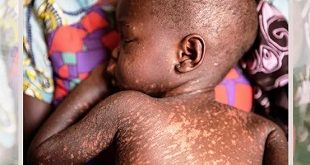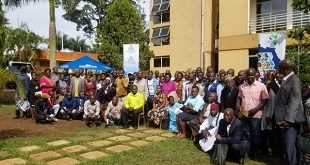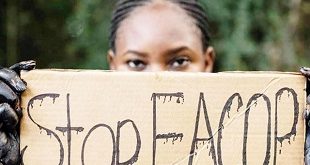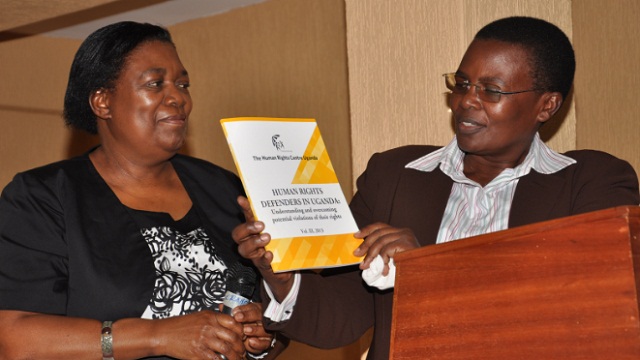
Coalition boss decries shrinking space, calls for constructive engagement with state
Kampala, Uganda | FLAVIA NASSAKA | Robert Kirenga, the Executive Director National Coalition of Human Rights Defenders Uganda spoke to the Independent’s Flavia Nassaka about his perspective on the international human rights defenders day and general human rights situation in the country.
You launched in 2013. What informed this move and what’s the mandate of the National
Coalition for Human Rights Defenders?
We were formed by a consortium of ten civil society organizations with an objective of advocating for a secure and peaceful environment for human rights defenders. One would ask who is a human rights defender. For us this is a person or an organization who works to promote rights of others. As a coalition we are mandated to protect their work by ensuring that we represent them in instances where they for instance need legal protection or physical security. Organizations like Uganda Law Society, Foundation for Human Rights Initiative, the Uganda NGO forum, Defenders Protection Initiative and Human Rights Network Uganda (HURINET) founded the coalition that is now an umbrella of over 100 organizations across the country.
December 09 is marked internationally as Human Rights Defenders Day. What exactly happens on this day and what’s the agenda for its celebration?
Human rights defenders globally thought that they needed a day to reflect on their work and how it’s contributing to development of different nations. Unlike other international days where there’s always an international theme that countries are supposed to focus their celebrations on, for this day we come up with a theme relevant to the context in which it’s being marked in a specific country.
Our theme here is the ‘shrinking space for civil society organizations’. As we mark this day government has never returned phones and computers that they confiscated from the four organizations that they raided two months ago. We are seeing our operating space being narrowed by the state and its agents. Look at what one has to go through to start an NGO. The process is too tedious and yet you will only be allowed to operate for a year and go back to re-new your registration.
When you do this successfully another hurdle will be the kind of environment you will operate in. You will be intimidated and threatened with closure the moment the state is pinched by your work. They will also accuse you of being partisan and receiving illegal funds even when the sources of funding are easily tracked. Those are some of the issues that we will be reflecting and brain storming on as we mark this Human Rights Defenders’ day. One of the activities organized is a dialogue to be attended by both non-state and state actors so people can know what we do. Some actors tend to politicize the work of NGOs out of ignorance of the fact that our interventions contribute to attainment of national priorities.
Are you partisan?
Yes. Civil society is partisan but we are partisan to a cause for which we were formed which is to ensure that promotion of democracy and human rights is upheld, to ensure corruption is got rid of and to ensure safety of human rights defenders. NGOs are not linked to political parties. The laws that create political parties are different. The biggest funder of NGOs in Uganda is the Democratic Governance Facility (DGF), a consortium of donor countries like Norway, Sweden and Austria that give funds to governments and organizations to push causes in different areas like governance, education and others. So it’s quite disturbing to see government becoming skeptical of where we get funding because they also get money from these same donors.
You seem frustrated. How do you rate this year in terms of upholding human rights in the country?
2017 has been fluctuating depending on the circumstances. Look at what happened in March after the assassination of former Police spokesperson Andrew Felix Kaweesi. So many people were arrested, tortured, prosecuted and then re-arrested under unclear circumstances even after court had granted them bail. Questions on whether the country respects such issues as freedom from torture were raised. Then came the debate of whether to or not to amend article 102(b) of the constitution to remove presidential term limits. Members of parliament with dissenting views were beaten up, NGOs that tried to point out wrong doing were threatened and a life was lost so at times it’s what is prevailing that will determine the human rights terrain in any country. For Uganda in 2017 on a scale of one to ten, I would give it five.
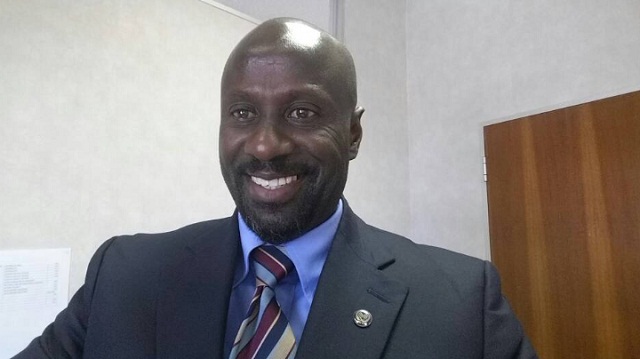
What do you make of the role of the media in exposing some of the human rights violations that you mention?
The media has done its best because it’s from them that many of us get a sense of what exactly is happening but events that have happened this year where journalists were arrested, some injured while in the field covering these demonstrations communicated to a fact that media managers and journalists have not invested in their safety and security. One thing that I thought about is where these journalists run to when they receive such threats and what safeguards do they have to retrieve their work incase their equipment is confiscated or tampered with. It’s because such things are not clear that journalists sometimes succumb when threatened. They have no fall back. I now encourage them to join coalitions such as ours because they are also a group of human rights defenders.
Both journalists and activists are now taking advantage of social media to push agendas. What do you think has been the role of social media in advocating for people’s justice?
Social media has its positives and negatives. It has really pressurized government to take some measures against people who violate people’s rights but I wouldn’t encourage anyone to take everything they get on social media for the truth because audiences receive, use and reproduce this information in different ways.
A number of reports are released every year highlighting top human rights violators and usually the police top these lists. Do you ever follow up on what becomes of this evidence? Do these institutions use it in decision making?
We can’t do much about what happens after exposing these wrongs. All we can do is to continue advocating against them. Our concerns are rather on how we protect our sources of such information from being antagonized. We also ensure that we have accurate documentations to provide evidence in court in case need arises. The problem I notice is that sometimes human rights defenders don’t have concrete evidence to cause some one’s prosecution. I believe if we keep accurately documenting such issues we can have grounds to push for accountability.
As human rights defenders, how do you rate your selves in reducing human rights violations?
As the national coalition we have not yet done much because we have had challenges spreading our wings. We are now working on our visibility because many people may not know who a human rights defender is. We are often seen as noise makers because the concept is not yet well internalized. I believe once our work is appreciated we will do more than what you are seeing now.
What challenges are facing rights defenders working in the country at the moment?
Apart from being intimidated, we face physical assault. Just recently a counselor in Mbarara suffered an acid attack because he was set to appear before the land commission of inquiry to fight for people whose land is being grabbed. People have to realize that in doing this work it’s almost inevitable not to step on people’s toes and should be conscious of what is likely to happen to them because of their actions.
What gives you motivation to continue doing work amidst threats and danger?
You don’t go to any school or university to learn to be a human rights defender. We always have that urge in us to advocate for people’s rights. But, what I should say is that human rights defenders need to be protected that’s why as a coalition we build their capacity in terms of putting in place safe guards. We protect their information, if they are in conflict or accused of breaking the law, legal services will be provided and depending on the nature of threat, there is also psycho social support. We also have a protection fund to relocate those affected until when their security stabilizes as we continue to advocate for bettering the general environment in which civil society organizations operate.
What type of protection or support is necessary for human rights defenders?
As one of our priorities for next year, we want to have constructive engagement with the state to ensure that this perception that NGOs are negative forces change. The state has a role to protect human rights. It has an obligation to respect people’s freedoms, they also have an obligation to protect everyone from the third party. If goons arrested suspects and they deny knowledge of them, that denial is an indictment on the state because they are supposed to protect all people at all times. The state also has an obligation to create an enabling environment for me to enjoy my freedoms including the right to associate.
 The Independent Uganda: You get the Truth we Pay the Price
The Independent Uganda: You get the Truth we Pay the Price

